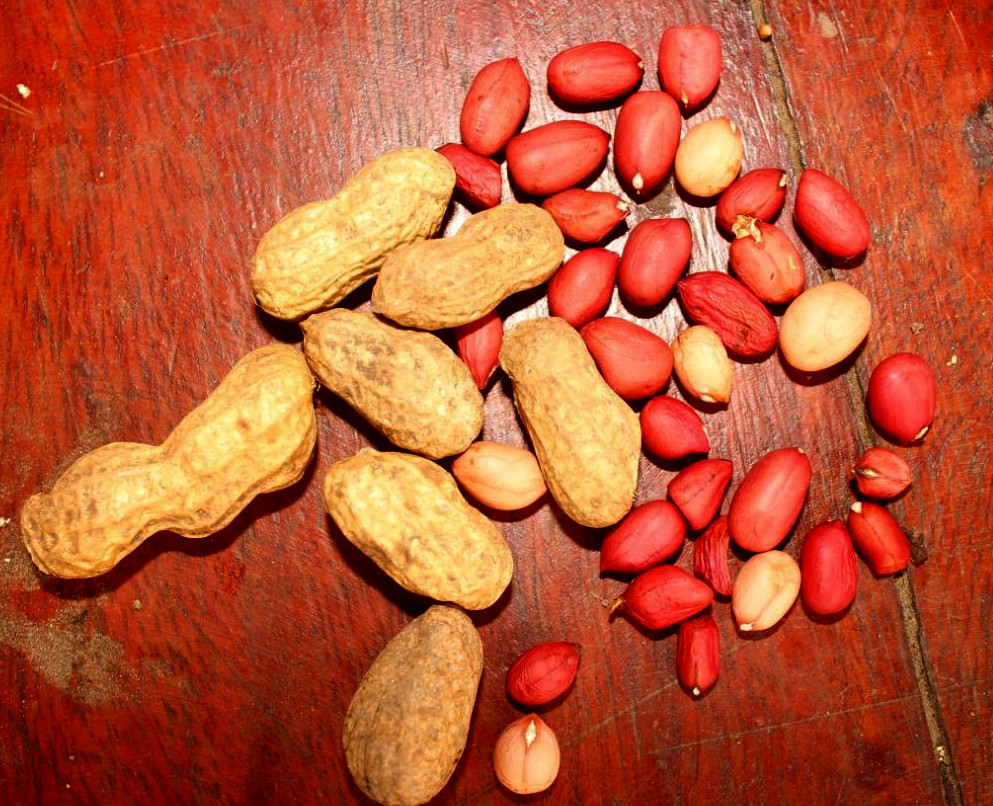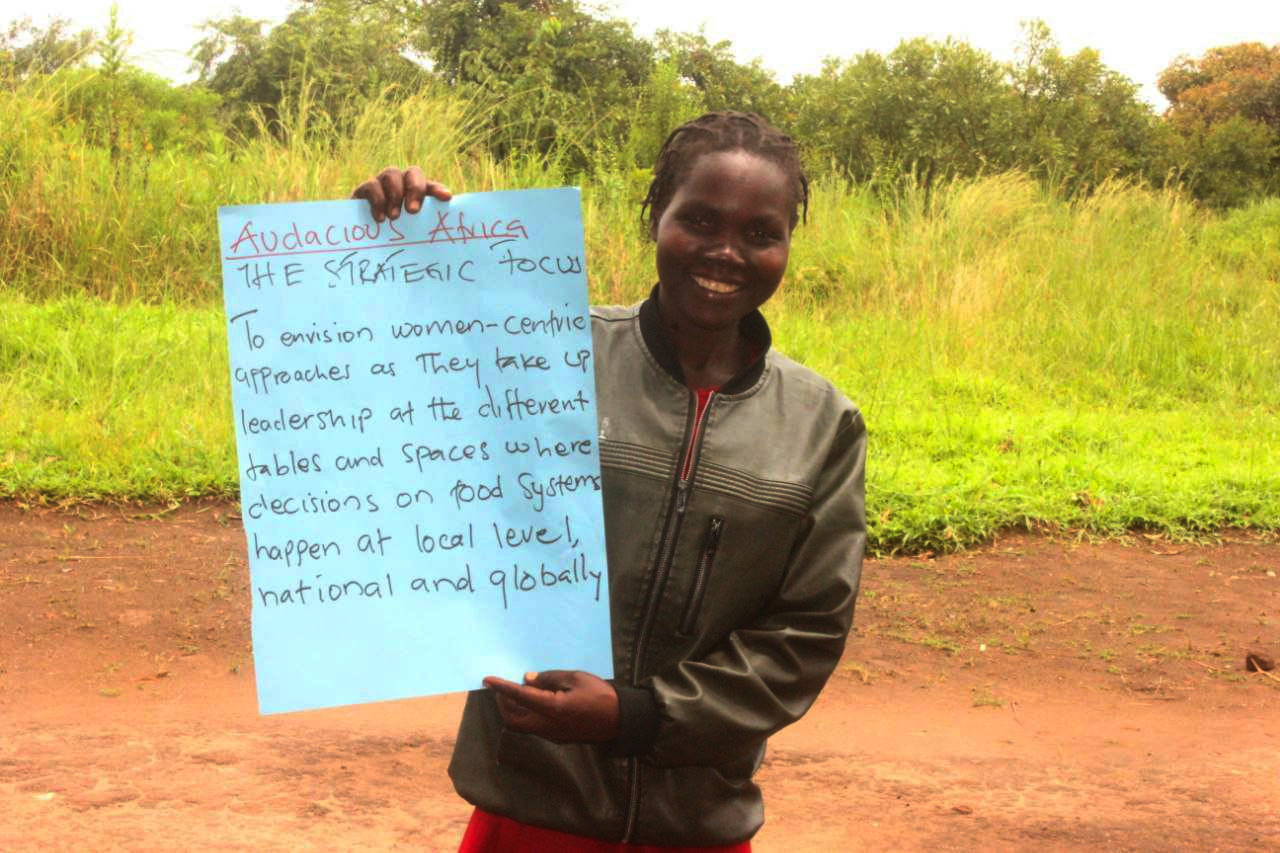Celebrating Our Passion......
"My grandfather used to say that once in your life you need a doctor, a lawyer, a policeman and a preacher but every day, three times a day, you need a farmer" - Brenda Schoepp
Audacious Africa exists to add building bricks to the promotion of afro-centric women-led food systems. Food systems that speak to the diversity of Uganda/ African women, their needs, cultural and social uniqueness and that are reliable and climate adaptive. We leverage the wisdom of African women, mothers and grandmothers passed down by the fireside, across kitchen tables, or whilst community gardening, to enable and build inter-generational conversations for knowledge building, sharing and learning for the cultivation of diverse local food varieties and seeds. We are intentional in contributing to the strengthening of food sovereignty and food security for every girl and boy, man and woman and every community and village in Uganda.
Audacious Africa is intentional on community knowledge and movement building as a vehicle for building sustainable food systems hinged on the diverse cultural and social existences of Ugandan and African communities.
In the words of Dr Vandana Shiva, “We receive our seeds from nature and our ancestors. We have a duty to save and share and hand them over to future generations in their richness, integrity and diversity”
Flourishing and healthy Ugandan communities buttressed by diverse, healthy, indigenous foods and seeds.
Build women and community agencies to enhance and promote healthy food choices, movement building for inclusive leadership, voice and influence, establishment of seed banks for seed sharing and conservation centre for indigenous foods and seeds for knowledge production, research and continuity.
Audacious Africa
In Uganda social and cultural orders discriminate against girls and women. Paradoxically women and girls are the glue and pillars of the health of families, food behaviour and practices despite the subordinating traditional cultures, norms and practices that deprive them of decision making and fore front leadership. Globally, colonial histories have negatively influenced food choices and behaviour pushing women further to the periphery. Capitalist and neoliberal tendencies discriminate and perpetuate women subordination through pushing for seed patenting, homogenisation of foods and large scale production of colonial/cash crops. Food colonialism is consistently dictating foods choices subsequently depriving communities of the choice to grow, consume and preserve cultural and local foods. Additionally, small scale food growers constantly grapple with the need to meet daily life needs like health care, security, and general livelihoods. The push to get quick cash through cash crops is pushing many into rushed and uninformed regrettable decisions that lead to massive loss, lack of food as most of the available lands are cultivated for cash crops. As a result food insecurity and malnourishment are on the rise. Without good, healthy food, it is almost impossible for communities to be well.
In Uganda women make 51% of 42.9 million people (UBOS 2019/2020 UNHS Reports). They are the primary care givers and instillers of norm, behaviour and practice because they spend more time with children and at home. According to the UBOS reports, women contribute more than half the labour in the agricultural sector. The agricultural sector currently contributes 24% of Uganda’s GDP. Women have the least ownership over land and the resources to ensure best participation in the how and what of the food they grow.
Albeit their social status, women are pillars of ensuring children and communities have steady supply of nutritious and diverse foods that are critical for healthy body building, immune boosting and bolstering strong communities. Critically the preservation of local/indigenous foods that are climate change resilient is a role women play un-intuitively as a result of the cultural setting in Uganda through cultural-social practices such as communal gardening, seed sharing and preservation. Women and girls are the backbone of food production as agriculture employs more than 63% of the 32% of the population living on subsistence (UNHDS 2019/20) unfortunately, there contribution to national development, health of communities, and contributions to preservation of diverse nutritious foods is under recognised.
Worse still this contribution is now currently under threat as the “modernisation” of agriculture and massive large scale production take centre stage in the food business. Additionally transnational corporations are strategically deepening their influence in what should be grown and how food should be grown. In addition to influencing what citizens consume, these pushes are distorting women’s position as creators and nurturers robbing them of their power and influence over the safety and health of families. Uganda’s Ministry of Agriculture, Animal Husbandry and Fisheries ( MAAIF) and Ministry of Health point out on the role of nutritious diets for healthy populations, the health of women in reproductive age groups and the growth of children. For educational attainment, it is undebatable the role, nutritious, diverse foods plays for brilliant, active and confident learners. For most schools, posho and beans is a staple consumption whilst the ‘rolex / kikomando’ (chapatti and beans) the most accessible for low income urban dwellers. All these choices and practices are further pushing the various nutritious foods to the periphery some almost to extinction.
Audacious Africa is a strategic intervention for decolonising our food systems through our feminist food justice approaches. Audacious will work with girl,women, schools and communities, to centre Afrocentric food politics for rebuilding food security based on systems that work for our cultures and diversities.
The Global hunger index affirms that more people world over will face a food crisis sooner than projected. In Uganda, factory based food commodities are replacing consumption of local foods. This is contributing to near extinction of many local food varieties and unhealthy eating habits and cultures especially among young people increase. Fast foods, “Rolexes” (wheat bread and beans) are increasingly becoming the ordinary person food. More women and girls face a crisis of limited access to healthy foods. The cash crop craze, lack of ownership on land further stifles their participation and agency. Unfortunately Uganda’s current schooling curriculum exacerbates the condition; unlike in the 90s when skills education was part of the school curriculum. Gardening was an important part of the curriculum where a culture of appreciating the process of healthy food production was inculcated and nurtured amongst learners. Today school gardens have become a rare sight as schools struggle with space and the pressure to pump students with numerous subjects. The changing climate conditions; floods, long droughts and global warming all point to the crisis poor food choices will create for our survival. The solutions lie in adaptive, resilient crops, a thing that women and local communities know so well.
We believe that we are what we eat, brain functioning, learning abilities, the reproductive health of women depends on the availability and easy access to diverse nutritious foods. In her article to the Yes Magazine Dr Vandana Shiva said
“We receive our seeds from nature and our ancestors. We have a duty to save and share and hand them over to future generations in their richness, integrity and diversity”
Women have been about this for ages and need support to continue this journey.
Audacious creators will promote the growth of local food varieties and healthy eating among young people with full knowledge that “we are what we eat”. By building a movement of women, girls and communities that grow and build awareness of healthy eating, we will tackle other related challenges posed by climate change and rising temperatures. Food is an engine for active participation in class, for confidence and self-esteem as it is a unifier for community building and preservation of seeds and food for the future. As a movement we will foster confidence, build girls and women’s agency through healthy local food activities and programmes in schools and communities.
-
To build a strong movement of dauntless women and girls that dismantle societal inequalities
-
To increase awareness on the value of local food and sustainable ecological food growing practices
To increase access to healthy food among women and girls and communities
Audacity : We are unapologetic about dismantling colonial and imperialistic heritages of thought and practice that perpetuate unhealthy food systems and choices including; homogenising and patenting of seeds and the cloned birds that do not self-re-generate.
-
Equity: with focus on Women, Girls and Communities.
-
Healthy: foods as drivers for healthy bodies, communities and leadership.
-
Communal learning: and partnerships as a way of developing community member’s capacity.
-
Partnerships: between women and men based on mutual respect
Diversity: that our difference is a strength and not an enemy.
Voice: that women’s voice and right to participation is amplified in effect to influencing, leading and guiding decisions and processes for the protection, promotion and preservation of African indigenous foods and seeds..
Discover Our stroy .......
Share the rich cultural heritage, traditional knowledge, and historical significance of Indigenous foods.
Check out our Work









